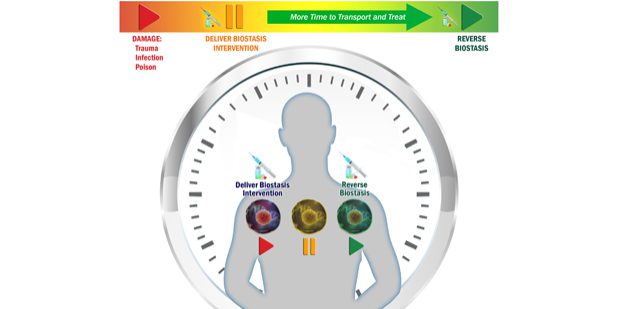This webinar will provide an overview of the Defense Advanced Research Project Agency’s (DARPA) Biostasis program. The Biostasis program aims to extend the time for lifesaving medical treatment, often referred to as “the Golden Hour,” following traumatic injury or acute infection, thus increasing survivability for military personnel operating in far-forward conditions with limited access to medical professionals or trauma centers. To do so, Biostasis is developing novel chemical biology approaches that reversibly and controllably slow biological systems without cold-chain to stabilize and protect their functional capacity until medical intervention is possible.
Biostasis is investigating novel applications of polymer chemistry, protein engineering, and deep cell activity monitoring to alter the time course of pathological processes associated with tissue damage and infection to delay the onset of irreversible damage. Researchers are investigating approaches that are not dependent upon reducing temperature and that scale from preservation of simple biological therapeutics such as antibodies and enzymes to whole cells and tissues.
The program seeks to generate proof-of-concept, benchtop technologies and experimentally validate them in simple biological systems. DARPA will work with federal health and regulatory agencies as the program advances to develop a pathway for potential, future human medical use of successful Biostasis technologies. By the end of the program, DARPA hopes to have multiple tools for reducing the risk of permanent damage or death following acute injury or infection. Biostasis technologies could also extend the shelf-life of temperature-sensitive therapeutics, such as blood products, enzyme preparations, and drugs.


